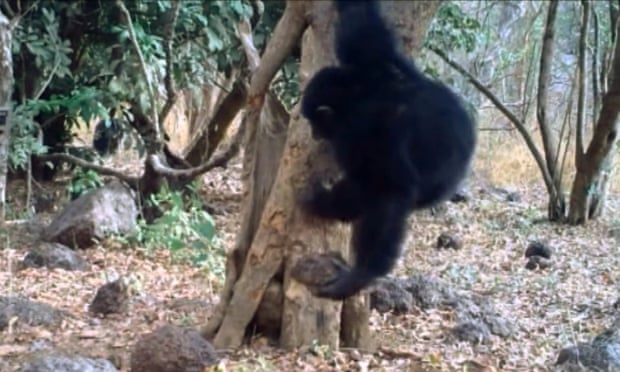A ritual with rocks observed in a study in Guinea has profound implications for our relationship with the animal kingdom
A young chimp collects rocks in a hollow tree trunk. Photograph: Kühl
A fter more than half a century of scientists studying chimpanzees in the wild, it was easy to think there were no surprises left. But there it was, right before our eyes – a new behaviour in our biological next of kin. We were a group of six on a field mission in the Republic of Guinea, investigating all aspects of a previously unstudied chimp community. These chimps didn’t enjoy the comforts of a protected area, but instead eked out their existence in what little habitat was left between expanding farms and villages.
The day of the discovery began as any other, struggling through the thorny African savannah while swatting away the sweat bees thirsty for our perspiration. We were surveying the area, looking for signs of chimps. We came to a stop at a clearing in the bush. I was relieved. It gave me a chance to untangle the thorns caught in my hair. But why had we stopped?
Read the rest of this article...

No comments:
Post a Comment
Note: Only a member of this blog may post a comment.